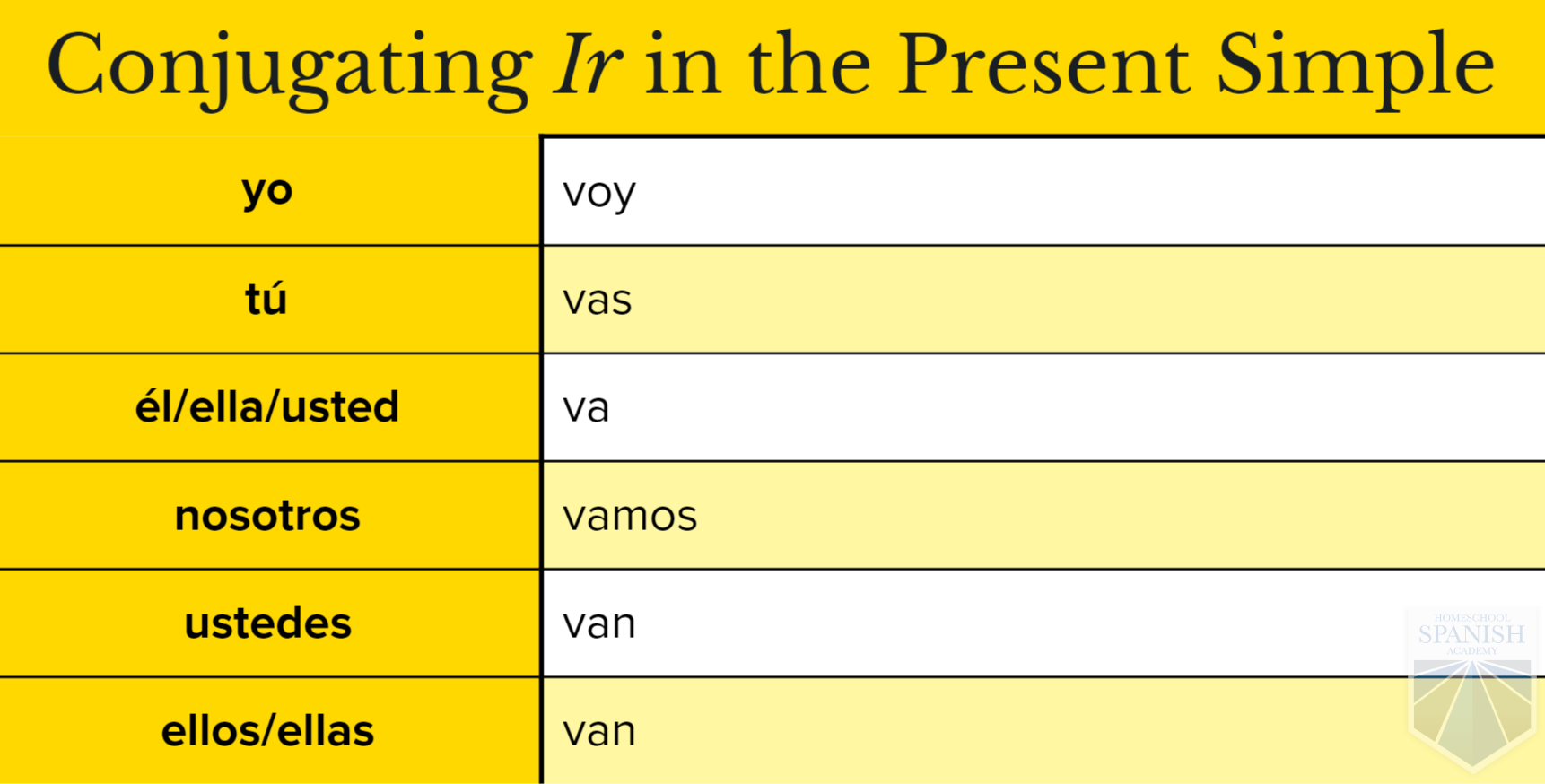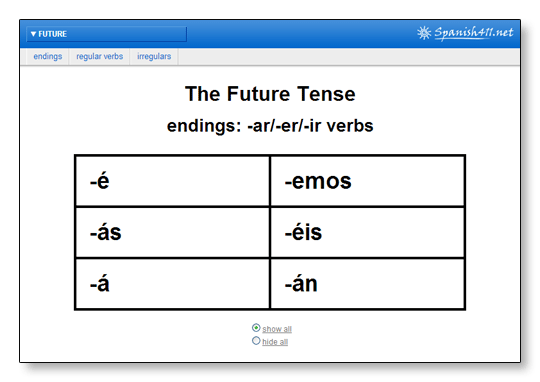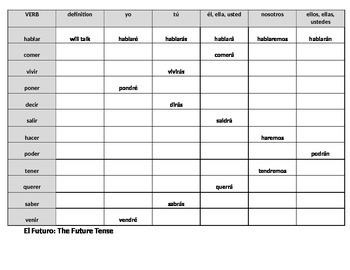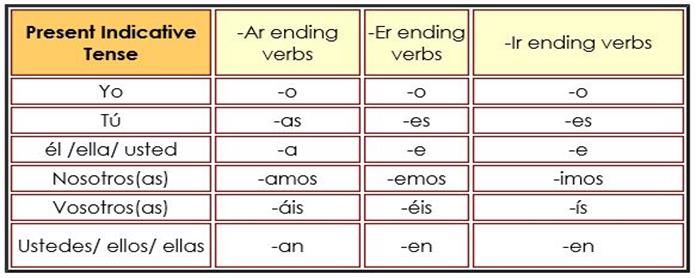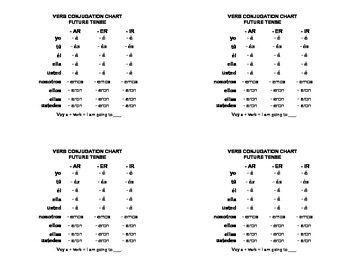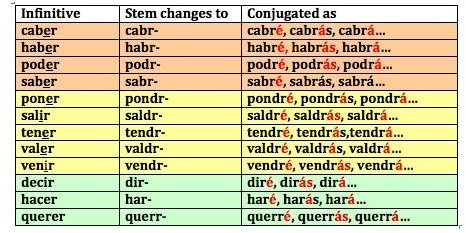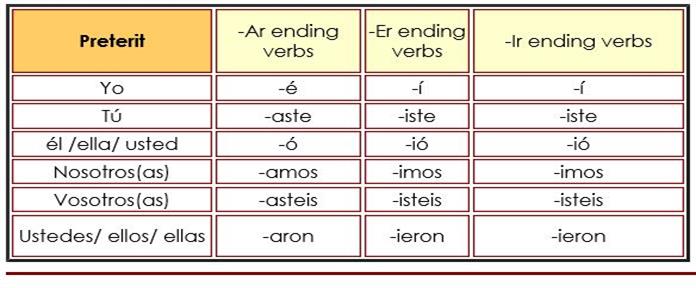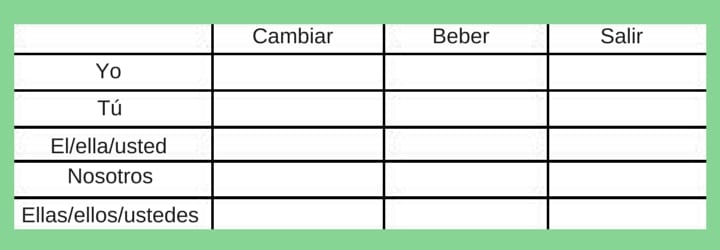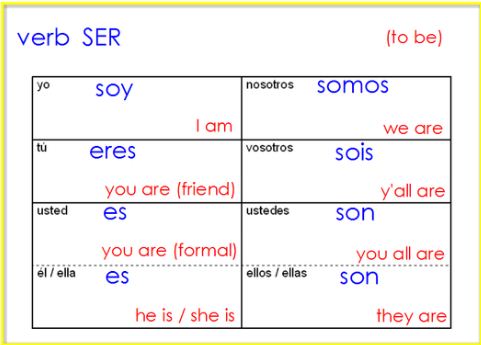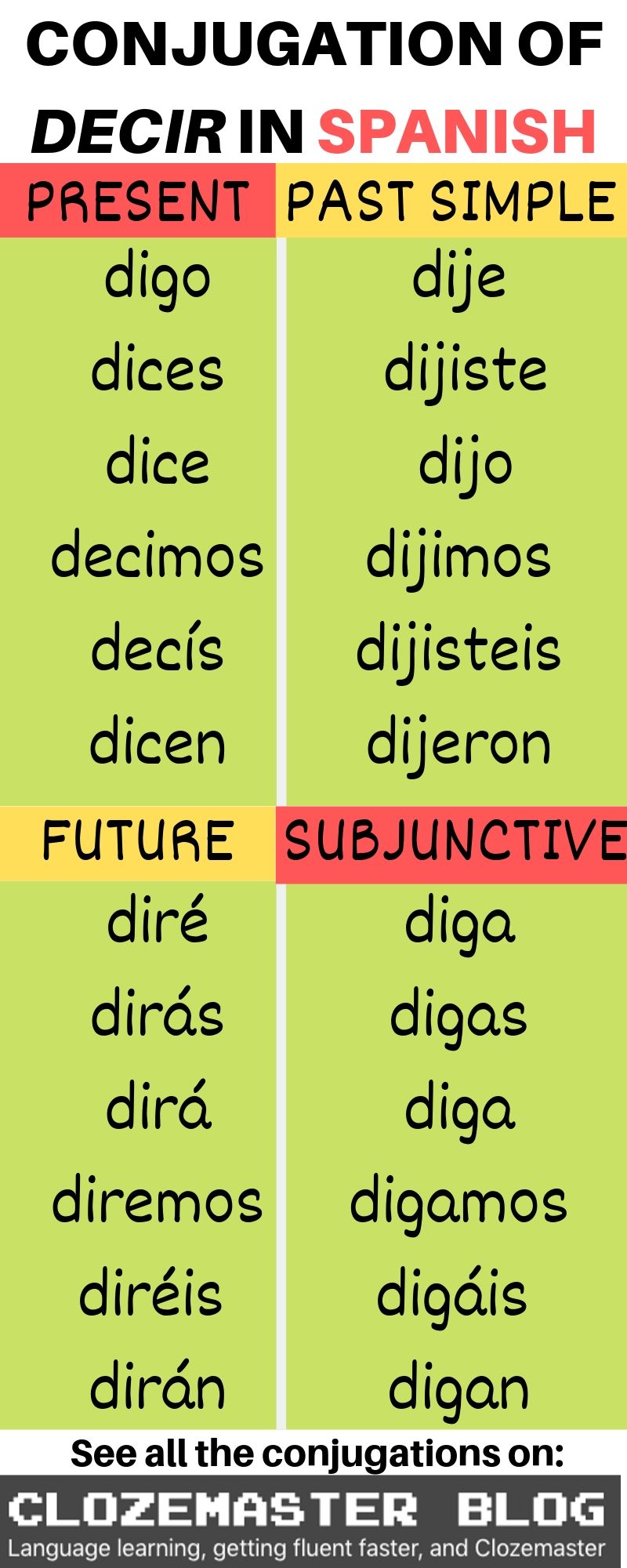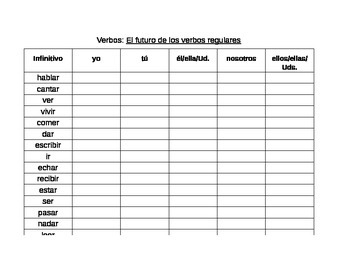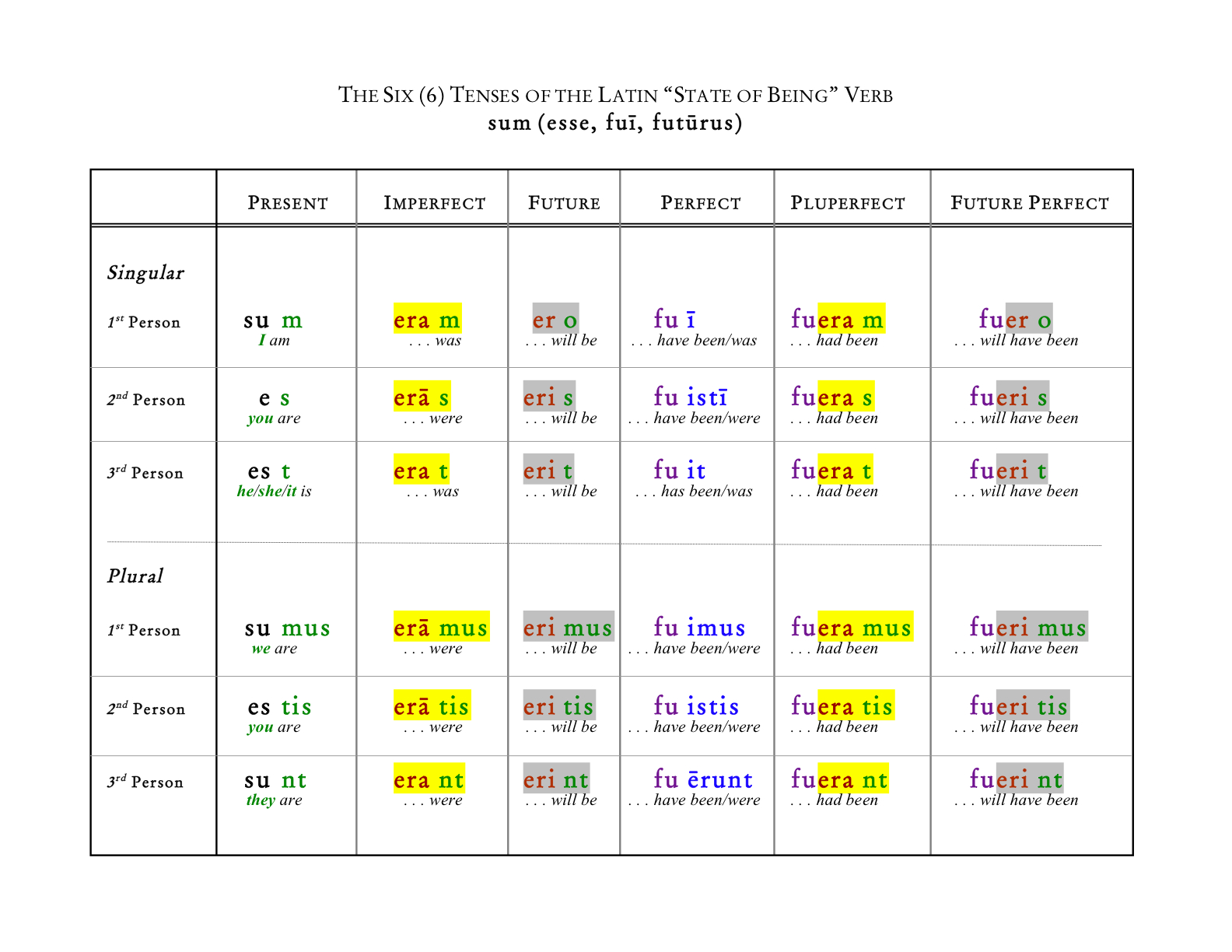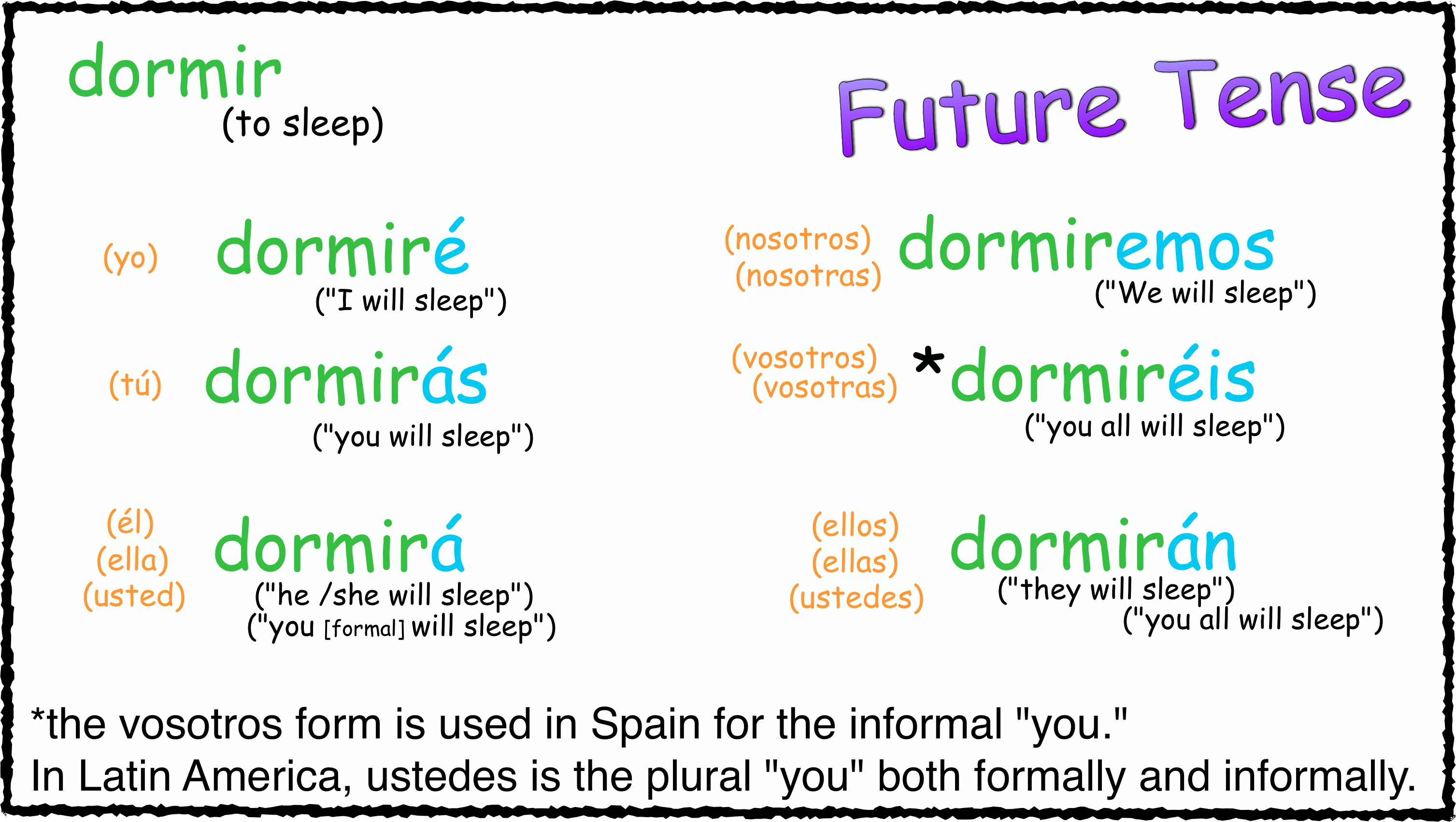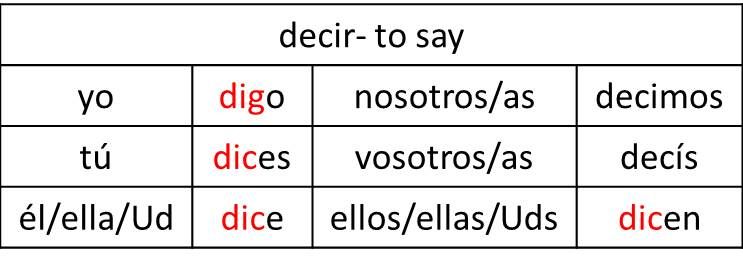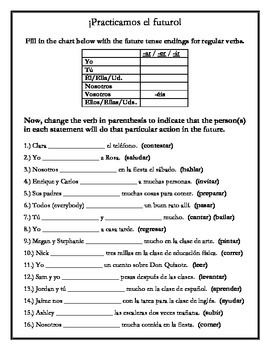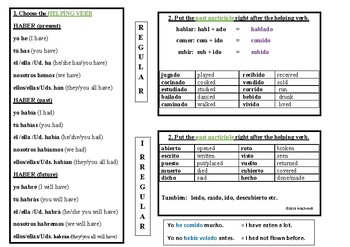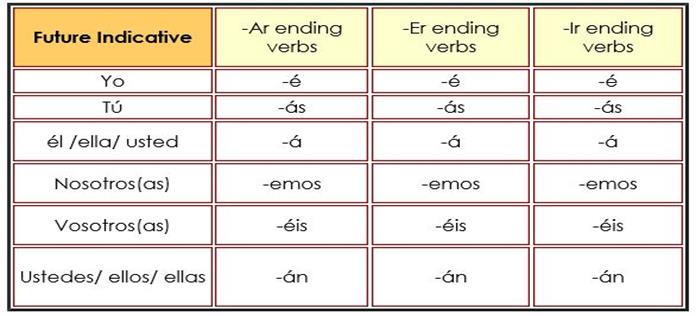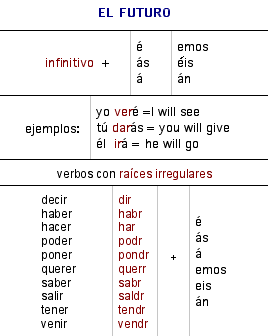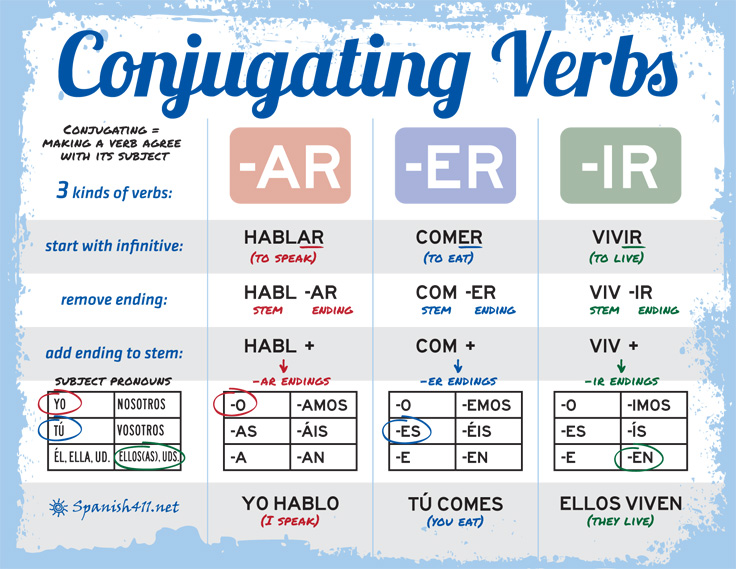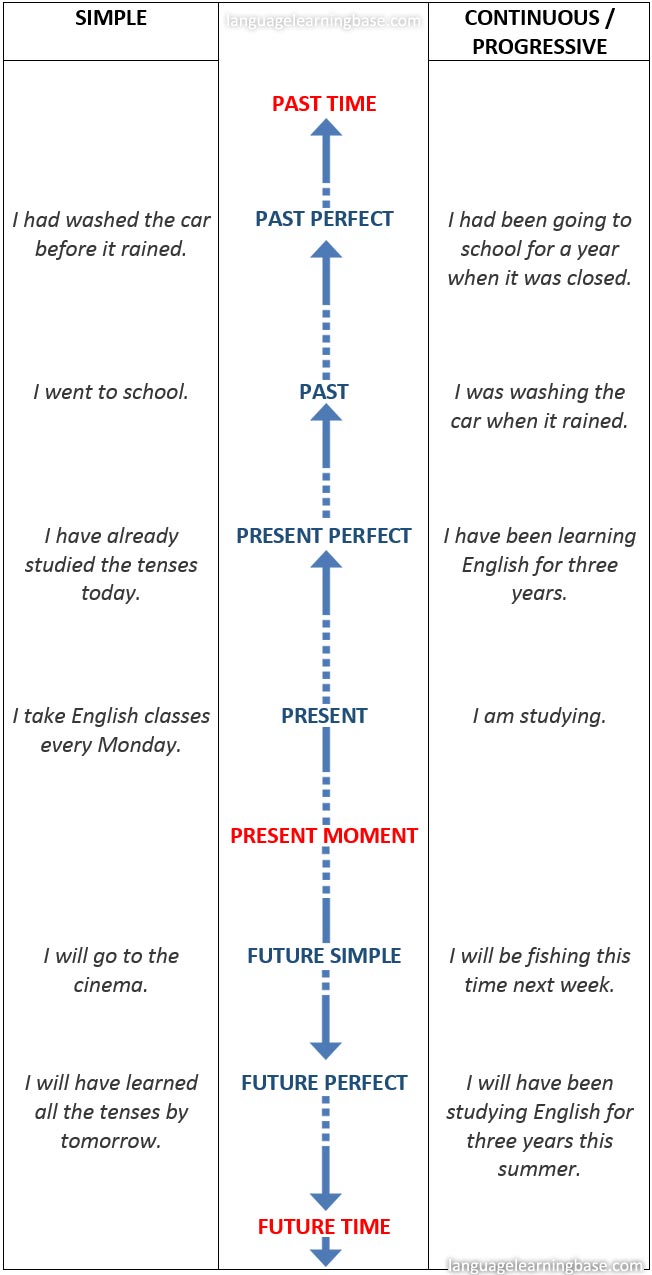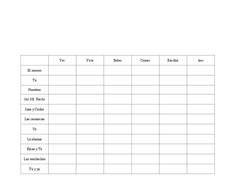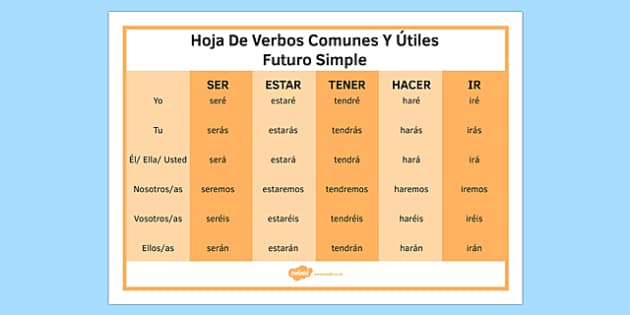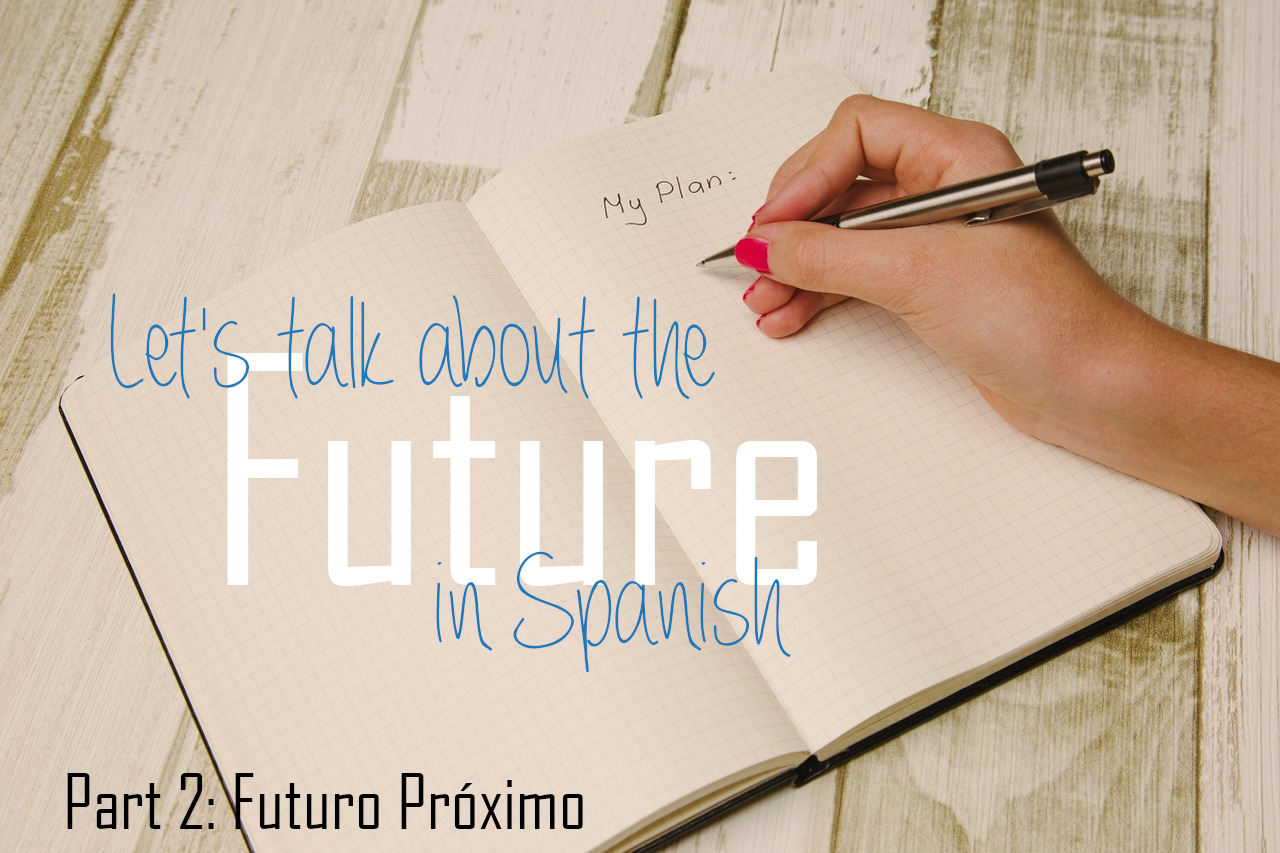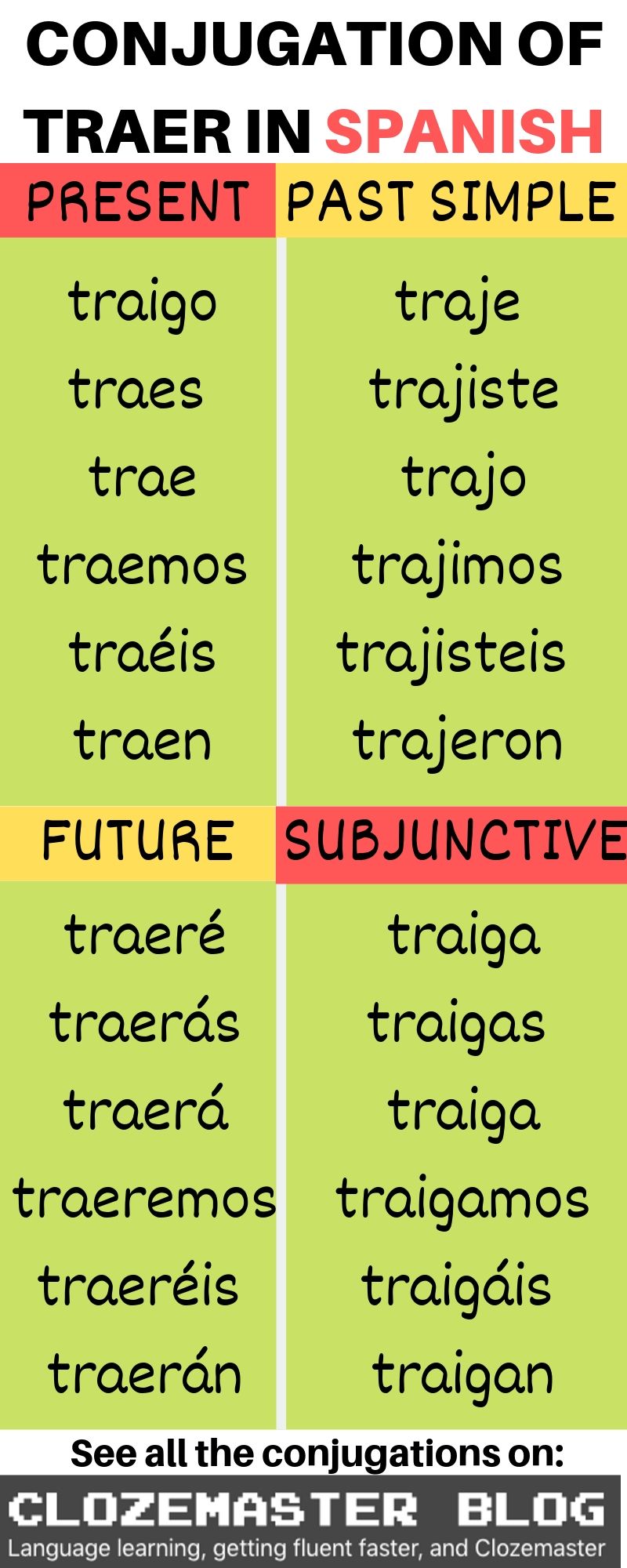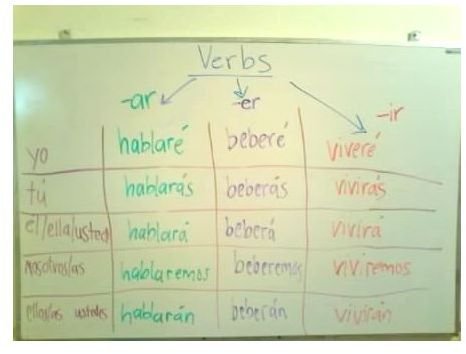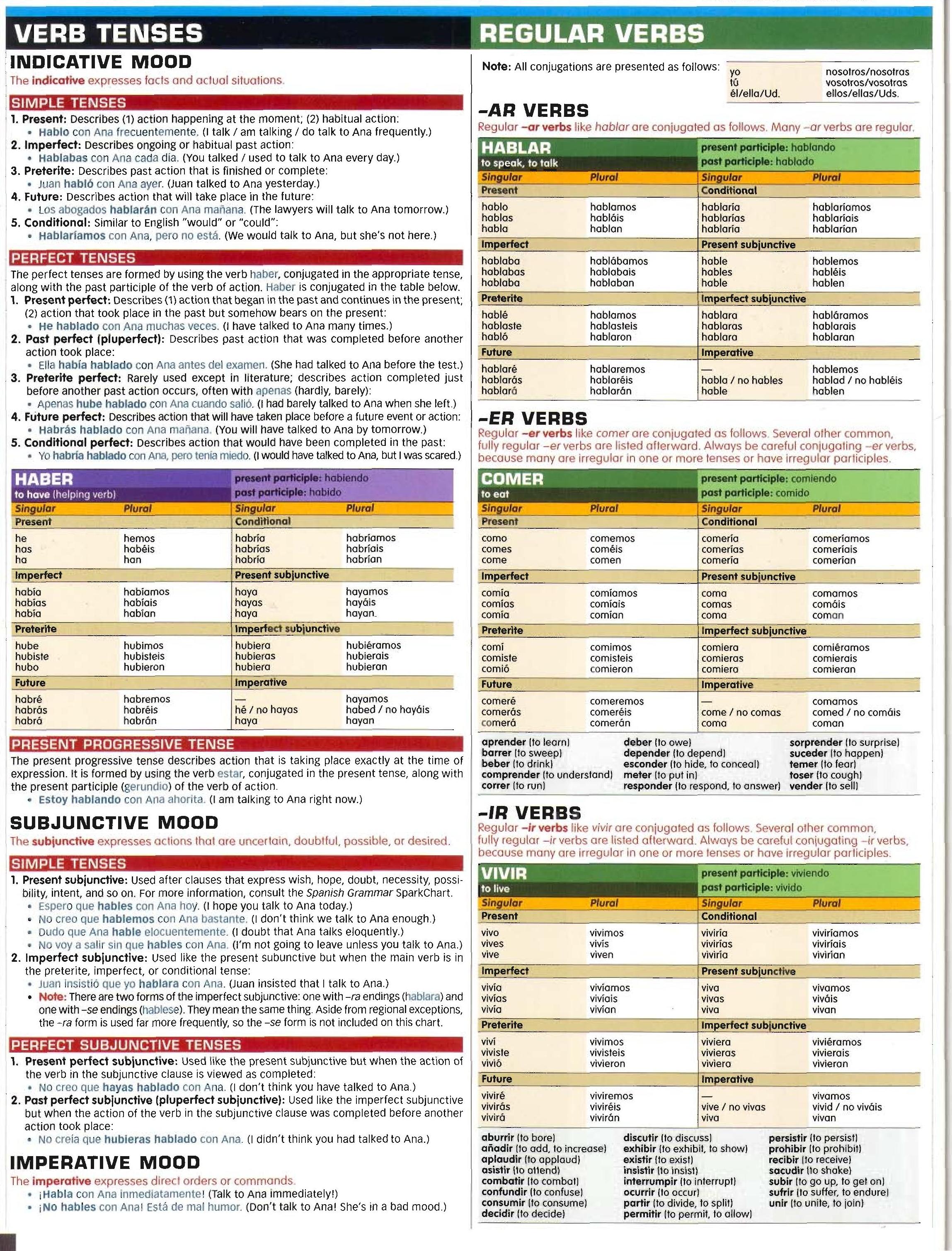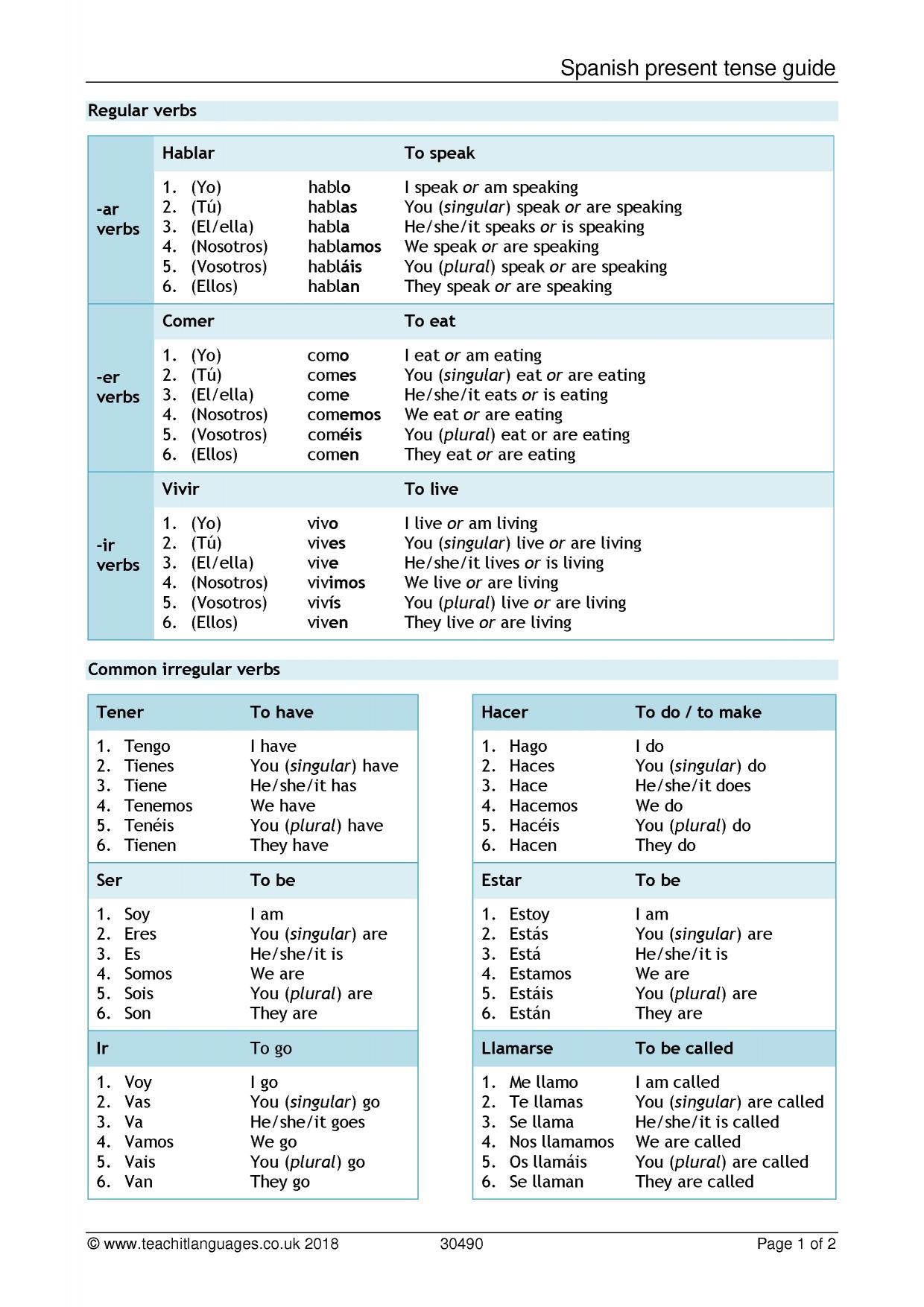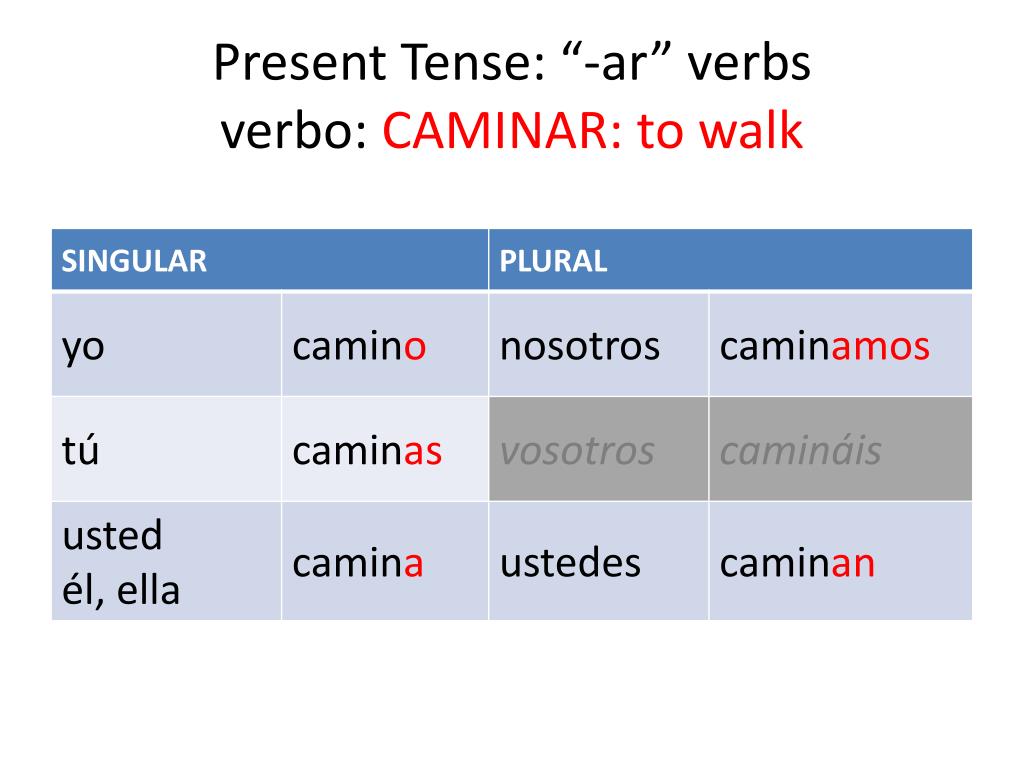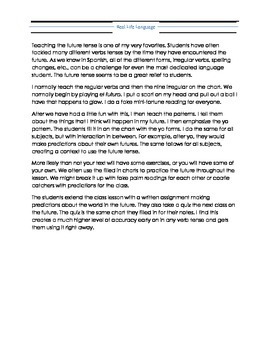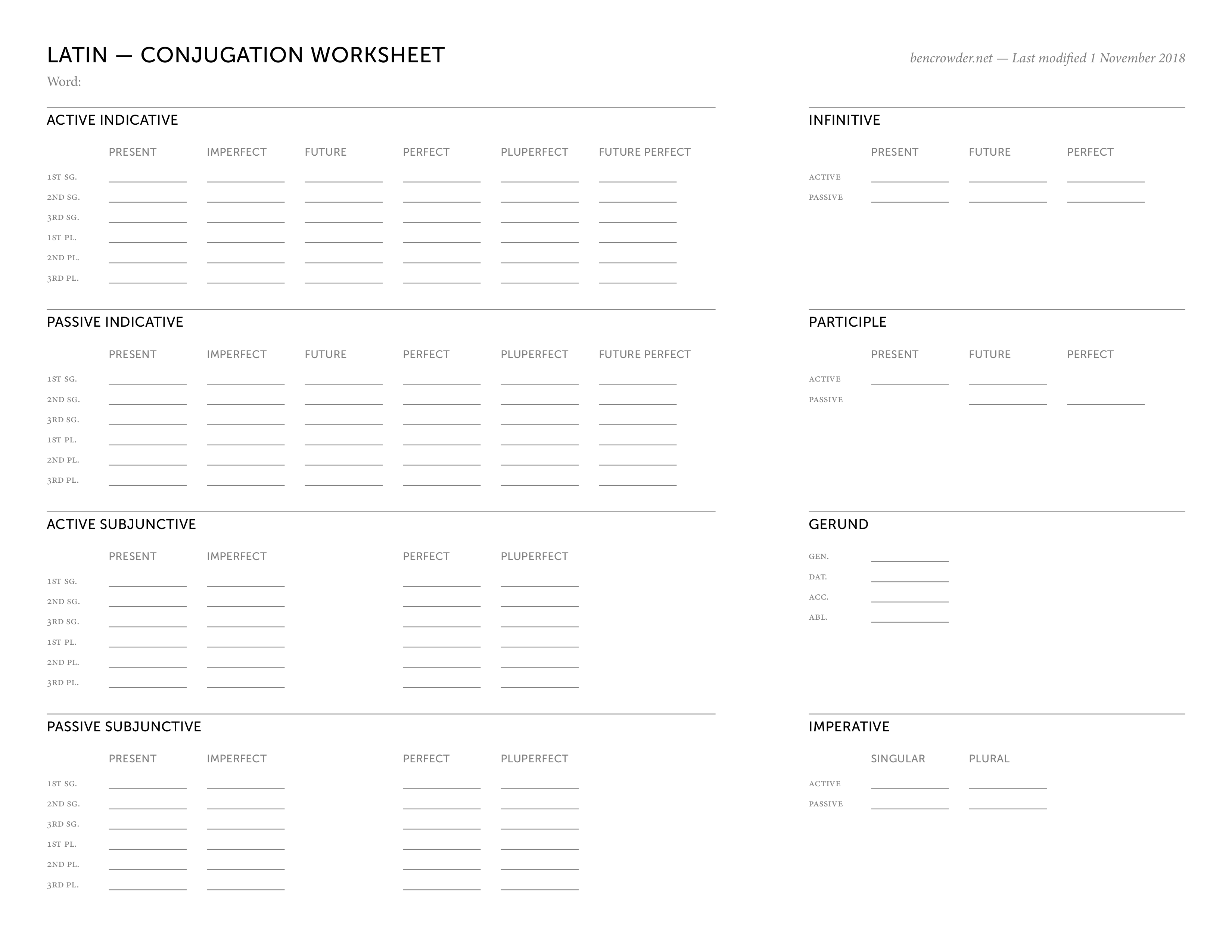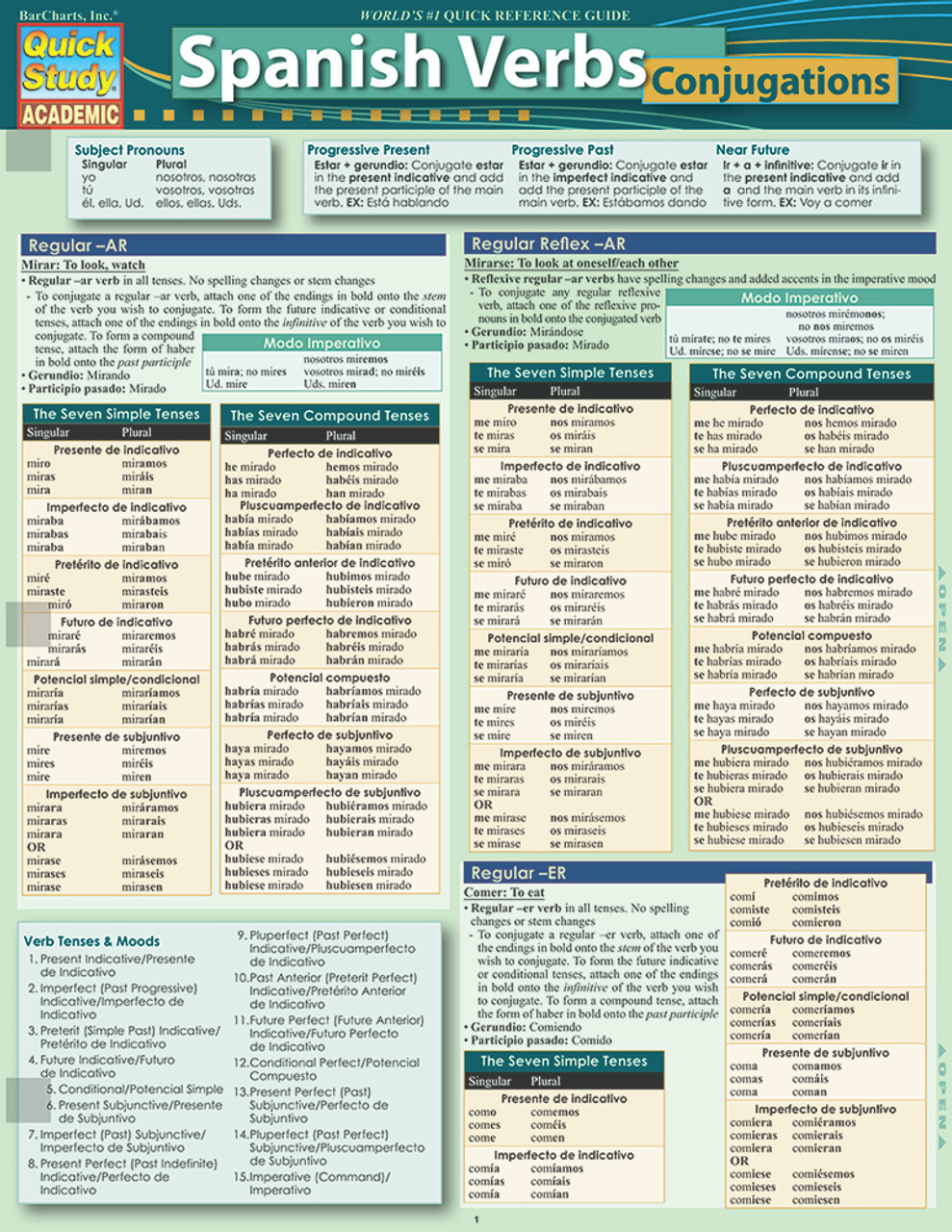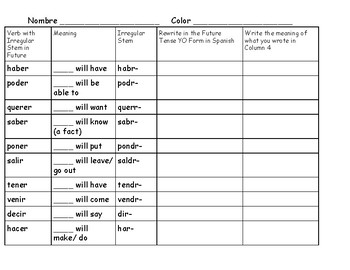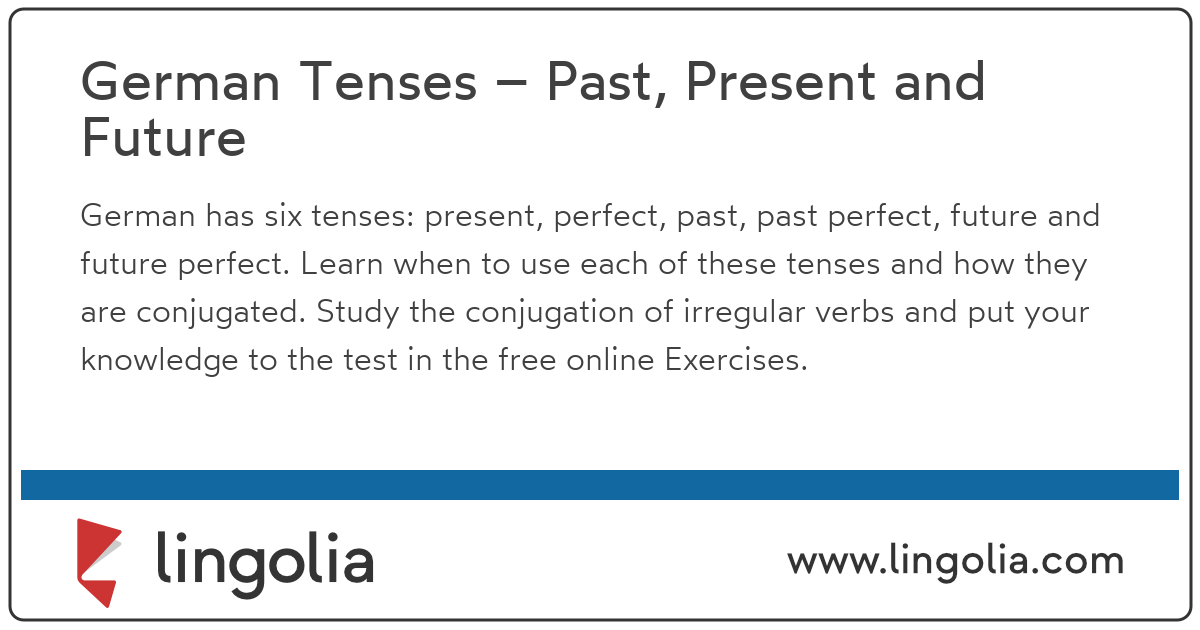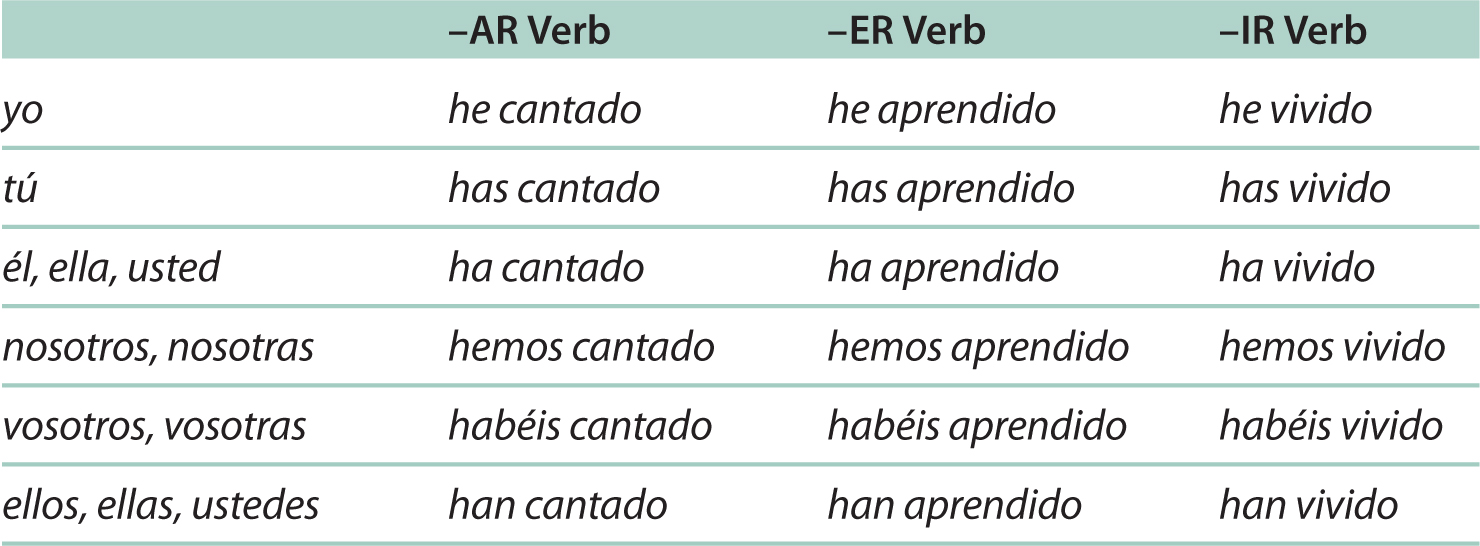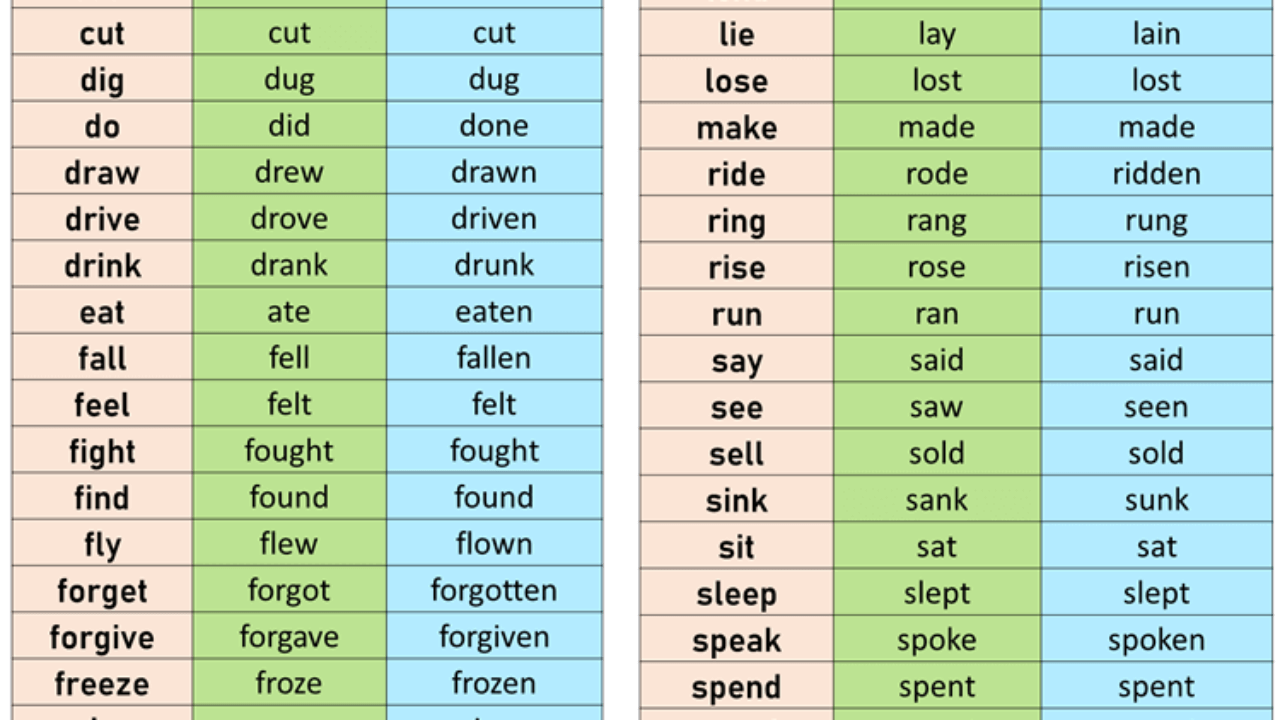Spanish Future Tense Chart
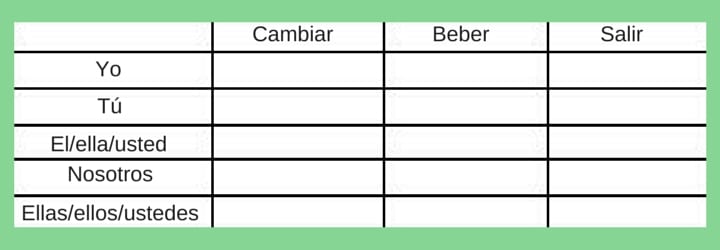
Quick overview of the spanish tenses.
Spanish future tense chart. Present tense imperfect preterite past tense conditional subjunctive imperative commands perfect tenses. Everything gets easier as we go. A clean and easy to read chart to help you learn how to conjugate the spanish verb estudiar in future tense.
Despite having a slightly different connotation or feel to them they are appropriate and completely acceptable when talking about your intentions. That s right all three verbs will use the same endings to form future tense. Used to express actions that will happen in the future and probability about the present.
Regular simple future tense spanish forms. Spanish future tense conjugation. Spanish verb conjugation charts.
Spanish conditional inflection regular verb chart. Future tense in spanish using near or simple the future tenses of near and simple are used similarly when it comes to our intentions. Spanish verb tenses indicative subjunctive past present future present perfect present present perfect present yo hablo i speak que yo hable that i speak que yo haya hablado that i have spoken yo he hablado i have spoken imperfect que yo hablara or que yo hablase that i spoke third person plural p op.
All verb conjugations ar er and ir have the same endings in the simple future tense spanish simple future endings. Conjugation chart for future tense futuro spanish verbs. The table below provides an overview of the spanish indicative tenses including examples of the conjugation of ar er and ir verbs as well as some general usage rules for each tense.
To form the simple future tense simply add the correct ending to the infinitive of the verb. The present tense is formed by adding the endings to the stem of the verb. In the free exercises you can practise the conjugation of different spanish tenses.
Learn this and more for free with live lingua. There are three sets of conjugations for regular verbs in the present tense. The difference with this form is that you keep the ar er and ir endings.
So the verb stays in its infinitive form.






